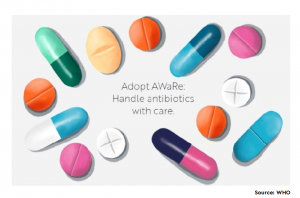About 2.4 million neonates die each year worldwide, of which the majority of deaths occur in seven low- and middle-income countries (LMIC). Systemic infections or neonatal sepsis accounts for one third of new-born deaths. Neonatal sepsis is declared as a global concern and major challenge by the World Health Organisation (WHO). Despite, reduction in infant mortality in the past 20 years, the mortality rate of children below the age of 5 due to neonatal sepsis still remains a burden. LMIC accounts for 98% of recorded neonatal deaths, yet the associated factors remain undetermined.
Study was carried out by The Burden of Antibiotic Resistance in Neonates from Developing Societies (BARNARDS) network to categorize gram negative species that cause neonatal sepsis. Blood samples were collected from 36,285 infants over the span of 2 years. 916 Gram negative bacteria (GNB) were isolated and categorized using Whole Genome Sequencing and Multilocus Sequence Typing. The study found out that the GNB species responsible for neonatal sepsis are Enterobacter, Klebsiella and E.coli. Both virulence factors as well as resistance genes present in GNB are responsible for neonatal sepsis and death in LMIC. GNB can readily transfer the new resistant genes by mobile genetic elements to become increasingly resistant.
Majority of neonatal gram negative bacteria isolates were resistant to aminoglycosides and ꞵ-lactam. Additionally, the blood culture isolates were found to be resistant to both ampicillin and gentamicin which are the first line antibiotics. The results from the study aim towards development of better antimicrobial therapies and vaccines for neonatal sepsis in LMIC.
To know more about the trend, please visit the website of Nature Microbiology (Link).







